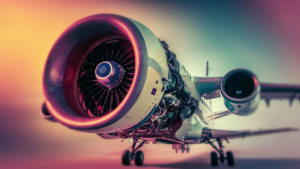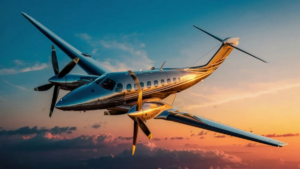Are you considering a career as a remotely piloted aircraft (RPA) pilot? One crucial aspect to contemplate is the salary potential in this field. As technology continues to advance, the demand for skilled RPA pilots is on the rise, leading to varied compensation packages across different sectors and regions.
Understanding the Salary Dynamics
The salary of a remotely piloted aircraft pilot can be influenced by several factors:
- Experience level
- Industry
- Geographical location
- Employer
- Certifications and qualifications
These variables play a significant role in determining the compensation package for RPA pilots.
Experience Level
As with many professions, experience often correlates with higher earnings. Entry-level RPA pilots may start with a modest salary, which can increase as they gain more experience and expertise in the field.
Industry Differences
The industry in which an RPA pilot works can greatly impact their salary. For instance, pilots employed by government agencies or defense contractors may receive different compensation compared to those working in the private sector, such as for commercial enterprises or research institutions.
Geographical Location
Location plays a crucial role in determining salary due to variations in the cost of living and demand for RPA pilots. Urban areas or regions with a high concentration of aerospace companies may offer higher salaries to attract talent.
Employer and Benefits
The employer also influences the salary package. Some organizations may offer additional benefits such as healthcare, retirement plans, and bonuses, which can enhance the overall compensation package.
Certifications and Qualifications
Obtaining relevant certifications and qualifications, such as a Remote Pilot Certificate issued by the Federal Aviation Administration (FAA), can increase the marketability and earning potential of an RPA pilot.
Overall, the salary of a remotely piloted aircraft pilot varies depending on numerous factors, including experience, industry, location, employer, and qualifications. As the demand for RPA pilots continues to grow, so too does the potential for competitive compensation packages in this dynamic field.
Job Outlook and Growth Opportunities
Understanding the job outlook and growth opportunities in the field of remotely piloted aircraft (RPA) piloting is essential for aspiring pilots. With the increasing integration of drones and unmanned aerial vehicles (UAVs) in various industries such as agriculture, construction, and emergency services, the demand for skilled RPA pilots is expected to continue rising.
Training and Education Requirements
While formal education requirements for RPA pilots may vary depending on the employer and jurisdiction, obtaining relevant training and certifications is crucial. Many aspiring RPA pilots undergo specialized training programs offered by aviation schools or institutions certified by aviation authorities.
Specializations and Opportunities for Advancement
Within the field of RPA piloting, there are opportunities for specialization and advancement. Pilots can choose to specialize in specific types of drones or industries, such as aerial photography, surveying, or surveillance. Advancement opportunities may include leadership roles, training positions, or transitioning to higher-paying sectors.
Frequently Asked Questions
Here are some common questions regarding the salary and career prospects of remotely piloted aircraft pilots:
| Question | Answer |
|---|---|
| What is the average salary range for RPA pilots? | The average salary range for RPA pilots varies widely depending on factors such as experience, industry, location, and employer. Entry-level salaries may start around $40,000 to $60,000 annually, while experienced pilots in high-demand sectors or regions may earn over $100,000 per year. |
| Are there any specific certifications required to become an RPA pilot? | While requirements may vary by jurisdiction and employer, obtaining a Remote Pilot Certificate issued by the Federal Aviation Administration (FAA) is often a prerequisite for commercial RPA piloting. Additional certifications and qualifications may be required based on the specific industry or type of RPA operation. |
| What are some potential career paths for RPA pilots? | RPA pilots can pursue various career paths within the field, including roles in aerial photography, surveying, agriculture, law enforcement, search and rescue, and environmental monitoring. Advancement opportunities may include becoming a chief pilot, instructor, or transitioning to management positions within aviation companies. |
See also:






